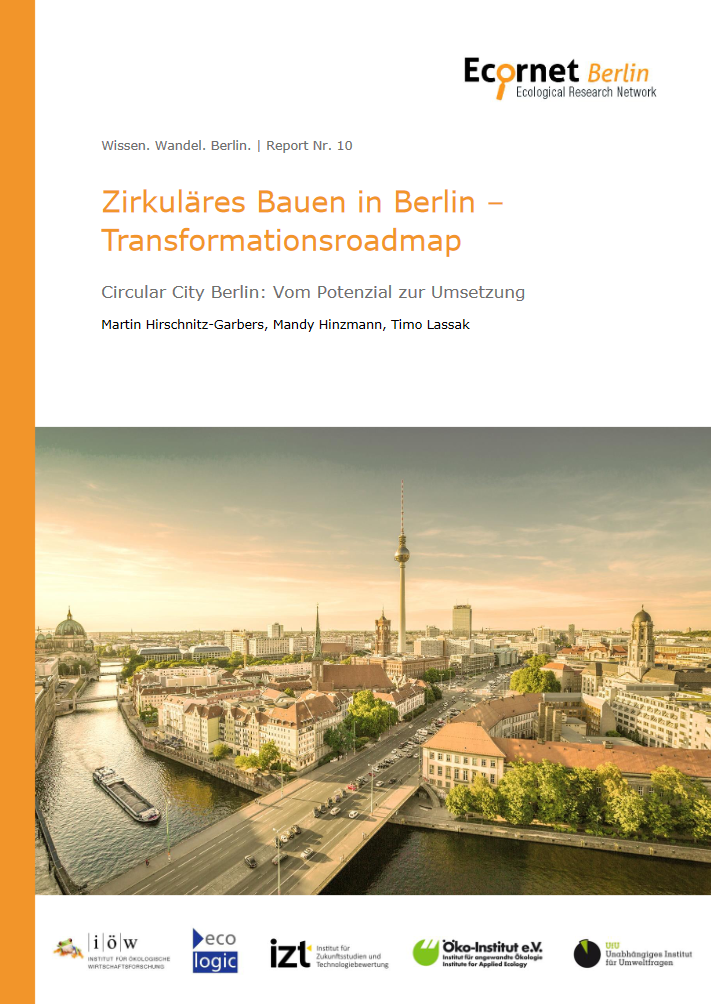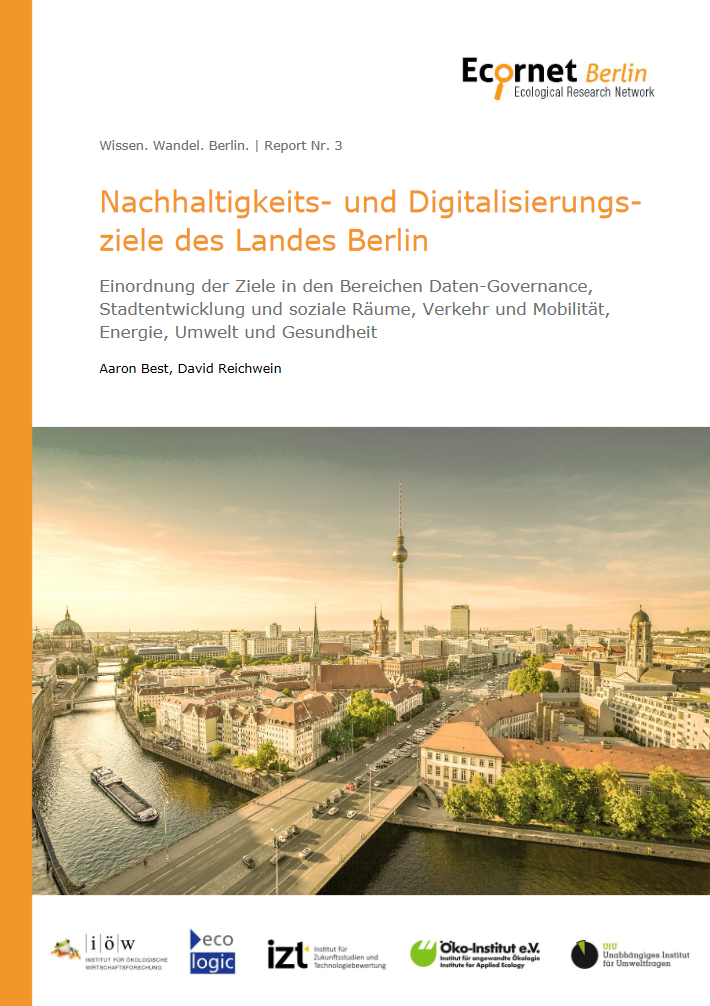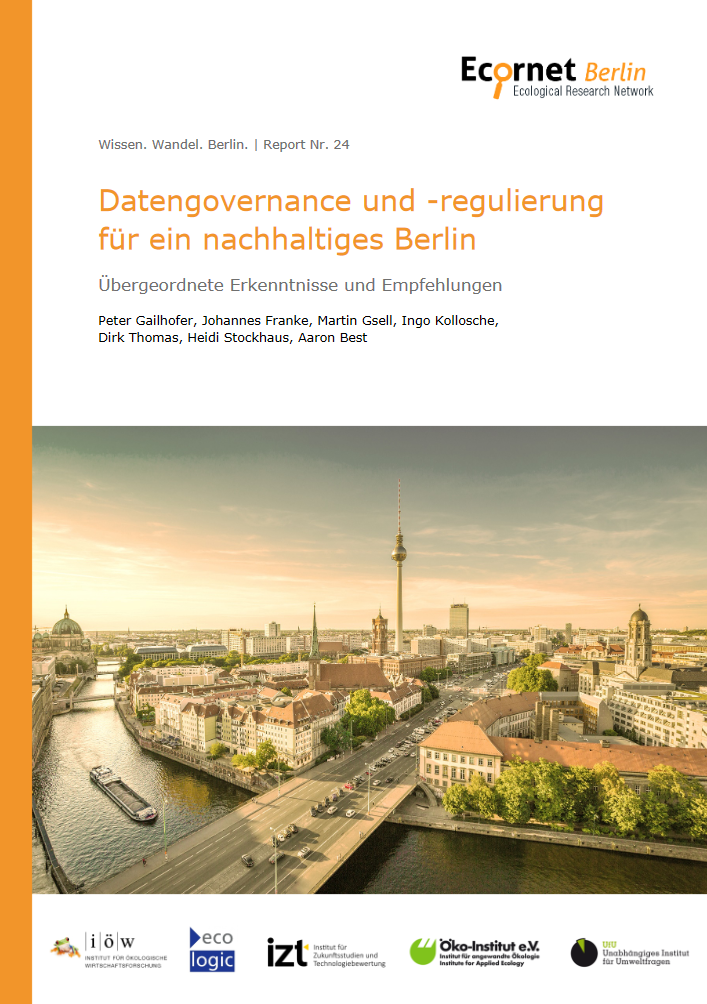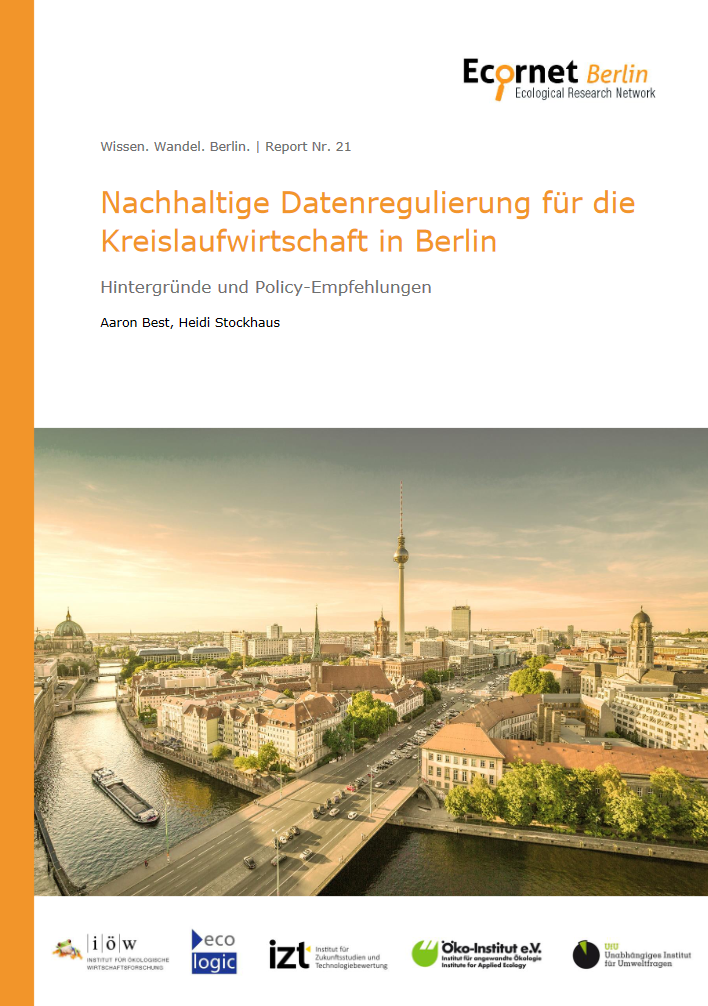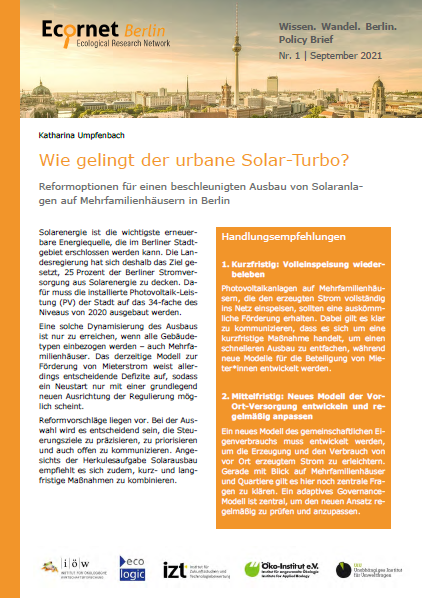StromNachbarn: Reformoptionen für einen beschleunigten Ausbau von Photovoltaikanlagen auf Mehrfamilienhäusern in Berlin
- Publication
- Citation
Umpfenbach, Katharina et al. 2022: StromNachbarn: Reformoptionen für einen beschleunigten Ausbau von Photovoltaikanlagen auf Mehrfamilienhäusern in Berlin. Wissen. Wandel. Berlin. | Report Nr. 24. Berlin: Ecologic Institut.
The state of Berlin and the federal German government have set themselves ambitious goals for the expansion of photovoltaics (PV) by 2030. These goals can only be achieved if all market segments quickly start to grow and keep on growing, including the segment of PV plants on multi-story buildings. This study examines current proposals for the further development of this segment and analyses the solutions used in Spain, the Netherlands and Austria. It shows that the two central goals – accelerating the PV expansion and involving residents – are in tension with each other, at least in the short term. Based on the analysis, the following sequence of measures is proposed: First, as an immediate intervention, PV plants that feed all of their electricity generation into the grid should be made economically viable again. Then it is a matter of developing and regularly adapting a new model of on-site supply, as well as initiating a dialogue about a potential future model that would treat PV as an integral element of building services – similar to the treatment of central heating plants today.
Policy background
Berlin wants to cover 25 percent of its electricity supply from solar energy, ideally by 2035. This corresponds to an electricity generation of 3,900 GWh and a total capacity of 4,400 MW – 29 times the capacity installed in Berlin by the end of 2021. Achieving this goal requires that the pace of PV expansion accelerates dramatically. At the Federal level, the new government has equally ambitious goals, aiming for 200 GW PV by 2030, up from 59 GW at the end of 2021.
PV on apartment buildings an important segment for PV expansion in Berlin. Plants can currently receive support as tenant electricity plants (Mieterstrom) which offer solar power directly to the households living in the building. However, the current model has a number of weaknesses and requires fundamental changes. Today, tenant electricity projects are only economically viable in a certain segment of the market. Moreover, metering with its complex and therefore cost-intensive requirements as well as the administrative obligations for operators are major obstacles.
Research process
The report builds on a detailed evaluation of Berlin's tenant electricity projects and stakeholder discussions of potential future policy approaches, including during an expert workshop held in June 2021. The project StromNachbarn was one of six research projects carried out within the Ecornet Berlin Research Partnership.
The report's key recommendations have been condensed into a policy brief that is also available for download.
